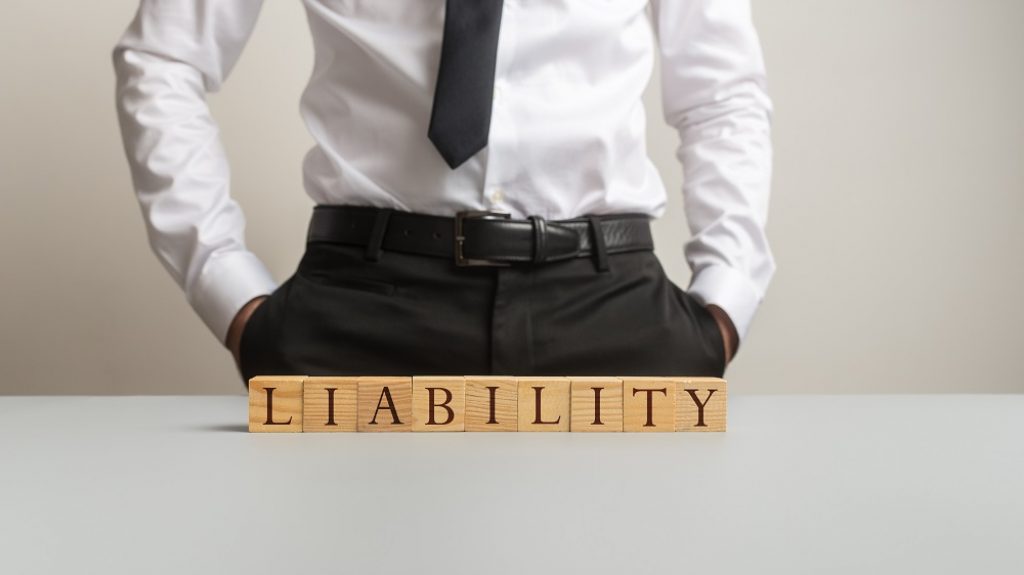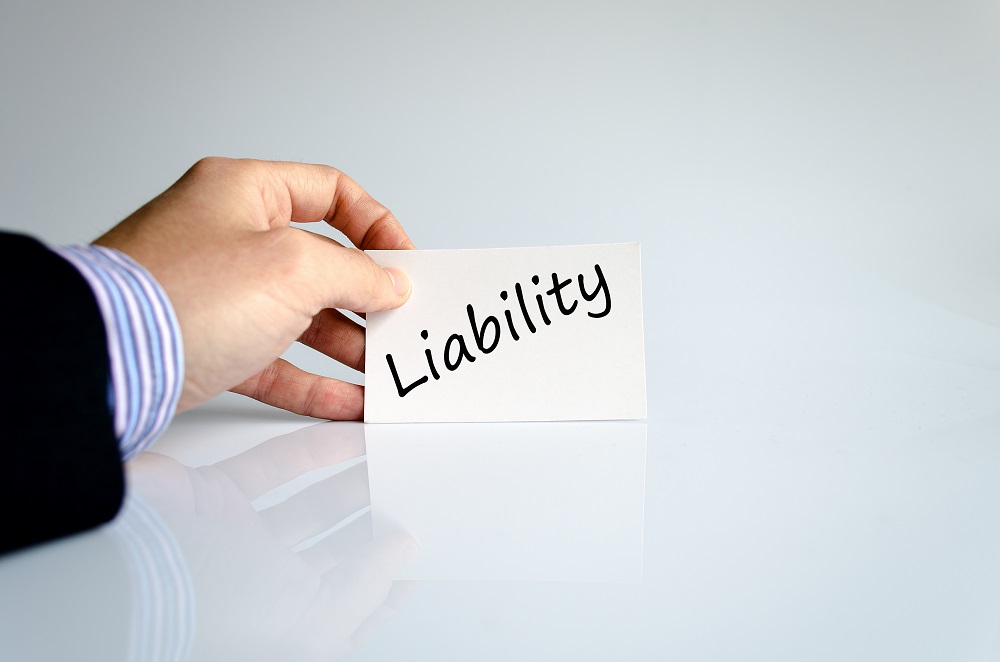A director is an appointed employee within a company that has had executive status and abilities bestowed upon them for the purposes of leading and managing the company in a small-scale basis, with certain companies even possessing multiple directors, of whom make up a board.
Apart from the ordinary duties and responsibilities that comes with possessing the position of director, said individuals are also subject to a guarantee known as personal liability, especially in cases of inter-entity trading and any matters concerning a governing body.
Personal liability is a guarantee by an acting director of a company wherein they place their own personal reputation, finances, and even legal freedom at stake during the procedures of trading with creditors and operating a company in a managerial capacity.
What is Personal Liability?

In legal terms, a director’s personal liability is the accountability held by a director in the event that they perform illegal or unethical actions against a creditor, governing body, or other entity that the director’s company has directly interacted with.
A violation of this accountability can have dire consequences, both for the company and its director, as legal ramifications such as fines and even imprisonment are very real consequences of such offenses against personal liability.
Personal liability is usually divided up into multiple sections in line with the various laws and regulations concerning such a guarantee, with things like a failure to disclose financial information causing quite different legal ramifications in comparison to other, more serious offenses such as fraud or intentional deception of shareholders and creditors.
Is Personal Liability the Same as Individual Liability?
The term personal liability is often used interchangeably with individual liability within the context of business involving a director or similar executive company member.
This is because of the fact that personal liability, by its definition, primarily applies to the individual director in the event that they have been found guilty of transgressions against the personal liability guarantee that is a duty upheld by every acting director.
What are the Main Forms of Personal Liability?
Personal liability is a rather complex form of guarantee with a multitude of facets that all present different ramifications and protections, depending on the particular situation and to what degree the director’s personal liability has been guaranteed to.
Disregard for Previous Legal Ramifications
Most often taking the form of a director retaining their position as an active director despite the fact that they have been disqualified by a governing body or court of law, directors found to be violating this particular type of personal liability can be punished with fines and further stripping of their legal abilities.
This is also applicable for individuals acting in the instructions of a previously disqualified director, wherein the motions and desires of the previously disqualified director are followed to the letter by the acting director, essentially keeping the disqualified individual in a directing position despite their disqualified status.
Deceptive Company Insolvency Clone Management (Phoenixing)
A fraudulent act wherein a previously insolvent and subsequently dissolved company is found to still be operating under the same name or that of a similar name, phoenixing is most often done by directors in order to escape creditors and legal ramifications of an insolvent company while still retaining its operational capacity.
This has its limitations, however, as the time statute of this particular insolvency act rule is only that of twelve months after the liquidation of said insolvent company.
This particular type of personal liability also does not apply to directors that were not previously acting in an operational capacity in the liquidated insolvent company, allowing unrelated directors to create companies in similar names.
Failure to Disclose Relevant Information to Governing Bodies
Perhaps the most common form of personal liability violated by a director, failure of a company and its board of directors to disclose relevant financial accounts and similarly related data to the companies house and other administrative entities can present consequences to the director responsible.
This can lead to the subsequent dissolution of the company, apart from other legal ramifications placed on the director themselves, such as fines, disqualification and even imprisonment if said failure to disclose information was for the purposes of committing fraud or misrepresentation.
In certain cases, however, this particular violation is simply unintentional and as such the companies house and similar governing bodies have provided a multitude of alternative avenues if such a situation may occur, as well as a length of time in which said violation’s ramifications will not apply if rectified immediately.
Misrepresentation, Deception and Fraud against Creditors or other Entities
One of the more serious types of personal liability violations, intentionally misrepresenting oneself or that of the company, pronouncing false statements with the intention of misleading creditors or shareholders as well as committing acts of fraud against said individuals and other related entities can result in hefty fines, imprisonment, and disqualification for the director themselves.
This is all the more significant if said actions were performed with the intention of making a personal gain or damaging the finances or life of an individual or entity, with such consequences reaching up to ten years imprisonment in the most severe of cases.
Contract Violation
Either by way of intentionally violating the legal terms of a contract or failing to disclose that the director themselves is acting as an agent of their company, contract violations are another major transgression against the guarantees of personal liability.
This not only can lead to the subsequent dissolution of the contract but also to legal punishments being placed on the company and on the director themselves, with more hefty and complex contract violations leading to even more serious punishments.
Fraudulent and Illegal Trading Practices
Whether done while the company is still in operation, during an insolvent state or after the subsequent liquidation of the company, directors can be held legally and financially responsible for any illegal trading practices conducted beneath the name of the company.
These can range from such matters as insider trading to continuing to operate and trade in a normal capacity after the compulsory winding down of the company, all of which can result in imprisonment, significant fines and certain liens being placed on the company and any directors found to be responsible for such fraudulent or illegal trading practices.
Financial Malfeasance
A term that primarily refers to the misuse or funneling of funds to the director’s own personal accounts or for their own purposes unrelated to that of the company – financial malfeasance and its subsequent penalties can range in terms of severity, primarily being modified by the value of the misappropriated funds or assets.
Financial malfeasance may even occur in a manner quite similar to neglect of duty, allowing individuals that have been affected by the financial malfeasance of an unaware or ignorant director to still place their subsequent claims in a court of law.
Why is Personal Liability in Business Important?
Personal liability is vitally important in the general course of business and finance due to the assurance it provides, not only to the government but also to creditors and other parties directly dealing with a director and their company.
Being appointed and vested with certain abilities not otherwise available to other individuals within the company, the responsibilities and requirements of a director are rather wide ranging, though the majority of which generally require that the director uphold the law in a proper manner while simultaneously benefiting and improving their company continuously.
Directors are also personally responsible for proper recordkeeping, management and disclosure in any matters directly involving them within the service of their company.
Creditors and Personal Liability
Directors are capable of taking and approving loans and similar financial benefits from external third parties, with personal liability acting as one of the main forms of trust between the two parties that thereby facilitates the loan procedure itself.
This is further extended by what is referred to as a personal guarantee wherein the director will personally stake their own name and finances as collateral during the funding procedure, with the director being held personally and financially responsible for repaying the creditors in the event that the company becomes insolvent or are otherwise unable to pay back its debts.
A personal guarantee may not be entirely voluntary on behalf of the director, however, as majority shareholder decision making or the wishes of the board of directors may require that a particular director themselves act as a personal guarantor so as to allow a funding loan to take place for the good of the company.
Contracts and Personal Liability
Much like how personal liability is a major factor in the procedures of funding and negotiation with creditors, the particulars and processes involved in forming and upholding contracts related to the director and their company is also subject to several guarantees that the director themselves are personally responsible for.
The largest and the one with the most legal ramifications if violated is if a director enters or initiates a contract without making it clear that they are acting on behalf of their company – of which may be considered fraud in the event that the director stands to personally gain from such an action.
This personal liability is also found to be violated if the director has overextended their legal abilities beyond that which is vested in them by the company and its shareholders, with fines, imprisonment and disqualification as a director all being potential punishments for making said transgressions.
Does Director Personal Liability Apply for Directors of a Limited Company?
While a limited company provides some level of protection to its shareholders and directors by the very nature of being a limited corporate entity, director’s personal liability may still apply in certain situations concerning the business of a limited company.
These are generally matters of the director violating certain statutes or laws that are meant to protect creditors and other external parties from acts of fraud and negligence, such as in the case of a director failing to disclose their intentions or representation within the context of contracts and trades.
Other manners that do not directly involve acts of fraud or intentional deception are those that violate health and safety laws, data privacy laws and welfare laws in concerns to the company’s constituent members, employees and any clients that they may have.
This is also applicable in instances wherein the director, knowingly or not, violates direct orders from a court of law, of which is referred to as being in contempt – a serious allegation that can lead to dissolution of the company and imprisonment of the director themselves.
Is a Director Personally Liable for Matters They Were Not Aware of?
Though some allowance is generally made between directors intentionally violating personal liability versus that of directors doing so out of pure ignorance, it is generally agreed upon that even directors unintentionally partaking in illegal or violative activity may still face legal ramifications if caught doing so.
Instead of fraud or deception, however, this particular case of personal liability violation is referred to as negligence, and as such may not carry as large a penalty as one would receive from actions that are more intentional in nature, such as intentional deception or misrepresentation.
References:
1. Klingner DE. The Personal Liability of State and Local Personnel Directors: Legal, Organizational, and Ethical Implications. Public Personnel Management. 1988;17(2):125-134. doi:10.1177/009102608801700203
2. Chengappa, M. P., and Adya Jha. “Personal Liability: Forging New Tools of Accountability in Public Law.” Indian Journal of Public Administration, vol. 67, no. 1, Mar. 2021, pp. 27–39, doi:10.1177/00195561211010559.
3. Mello MM, Frakes MD, Blumenkranz E, Studdert DM. Malpractice Liability and Health Care Quality: A Review. JAMA. 2020 Jan 28;323(4):352-366. doi: 10.1001/jama.2019.21411. PMID: 31990319; PMCID: PMC7402204.
4. O’Leary, W. John Blancett, Michael R. Davisson, Eric C. Scheiner, Ralph A. Guirgis. (2016) “Directors & Officers Liability Insurance Deskbook” American Bar Association, Tort Trial & Insurance Practice Section, 2016 ISBN 163425578X, 9781634255783





